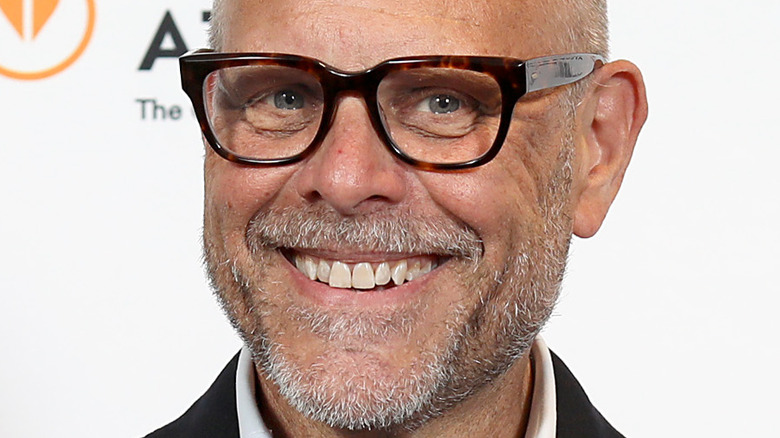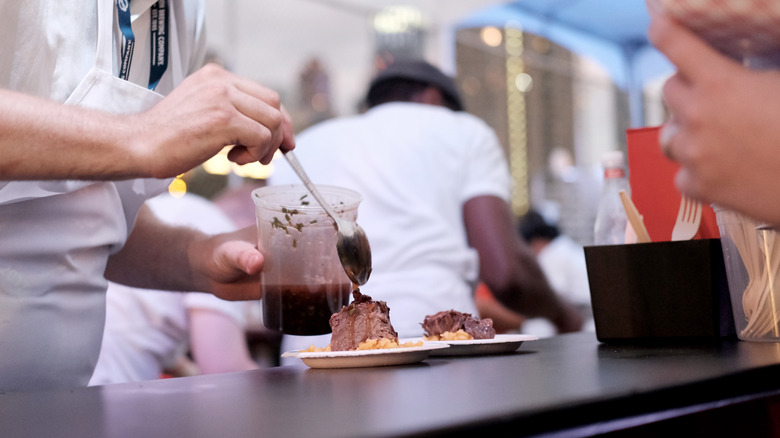Why Alton Brown Prefers To Be Called A 'Foodist' Rather Than Chef
Once Anthony Bourdain left his position as a line cook at Les Halle in Manhattan, he made clear that he did not want to be called "chef" anymore, reports The Independent. But, what is a "chef," technically? And why does the title carry so much weight? According to the Auguste Escoffier School of Culinary Arts, "Chefs must have a combination of education (either through school or learning 'on the job'), experience, and rank to earn the title." Indeed, the word "chef" does present some impressive and elite connotative implications. It's comparable to the cultural significance of a "doctor," with a Ph.D. in Michelin medicine. But, as Fine Dining Lovers points out, there's also a nuanced (yet greatly significant) distinction between the titles "chef" versus "cook." Chef is a more exclusive term, says the outlet, usually accompanied by a sense of "I've earned this."
Alton Brown understands the toss-up all too well. In fact, he's rejected both terms altogether. Brown is an indisputable longtime giant of the cooking world (his Food Network career alone has spanned nearly 20 years), but he doesn't identify as a cook or a chef at all. Instead, he prefers to be called a "foodist."
Alton Brown's focus is on food, not status
In an interview with Larry King, Brown explains his hang-up with the "chef" title. "'Chef' is a very specific kind of word to me," says Brown. "'Chef' is one of two things. 'Chef' is either given as a sign of respect from other peers in the cooking world... [Or] a word of derision when somebody is too big for their britches." Therefore, he feels that "foodist" is a more fitting descriptor for himself and his life's work. To Brown, "foodist" means he researches food, actively pursues education about food-related things, creates entertainment about food, and "everything I do in some way touches food."
Brown's sentiment echoes that of Tim Hayward writing for The Guardian: "'Chef' should never be used as an honorific, it's just the job description of the top guy in the kitchen." In fact, the dichotomy Brown explains is similar to the industry dogma around "mixologist" versus "bartender." As California-based bartender Nate Stanton expresses, via Eater, "I'm over the word 'mixologist.' Get rid of it altogether. Exactly what is a mixologist anyway? Last I checked there wasn't a diploma or accreditation for this title... You make drinks for the public, you are a bartender, plain and simple."
At the end of the day, Brown prefers the term "foodist" because it transcends any real or perceived showboating or would-be hierarchical elitism altogether, shifting the spotlight off of himself and onto the ultimate focal point of his career: food.

